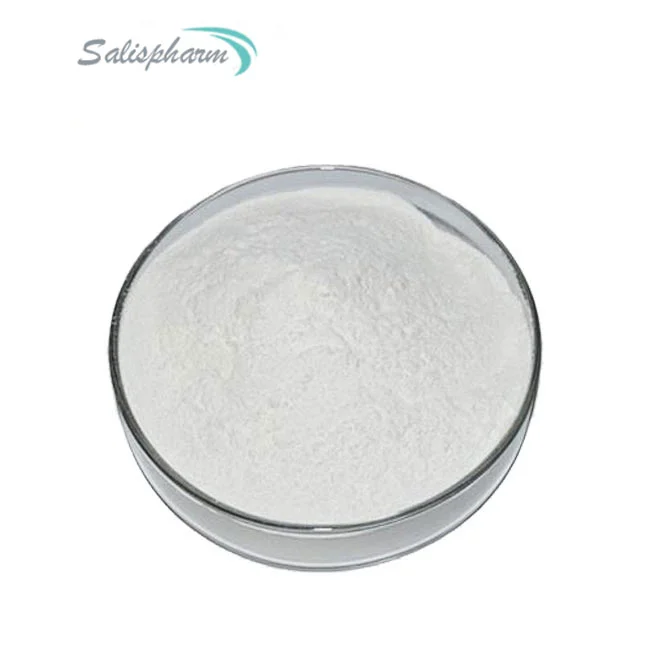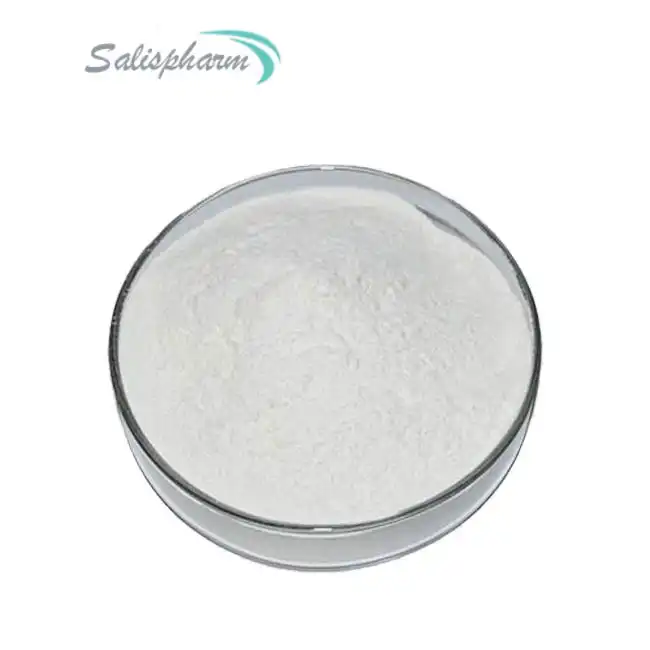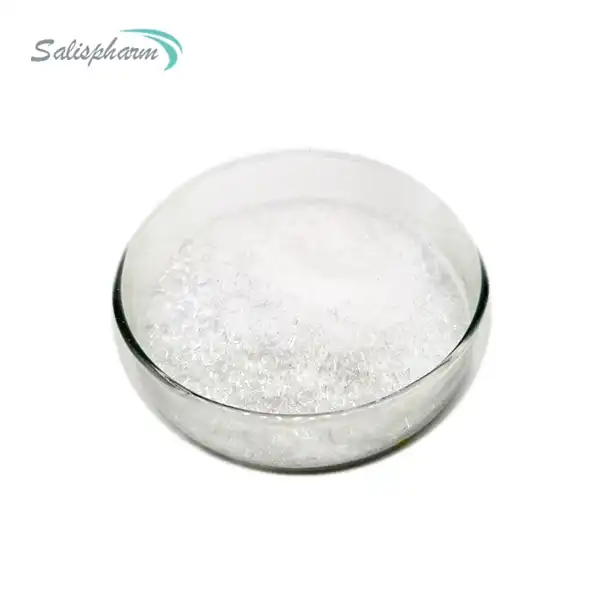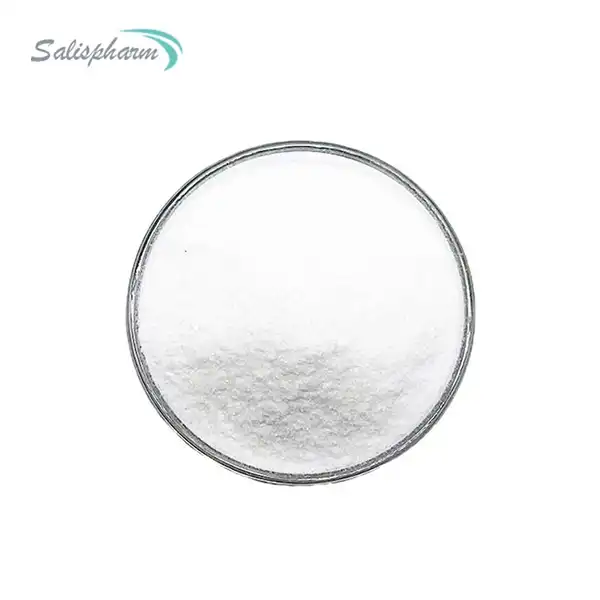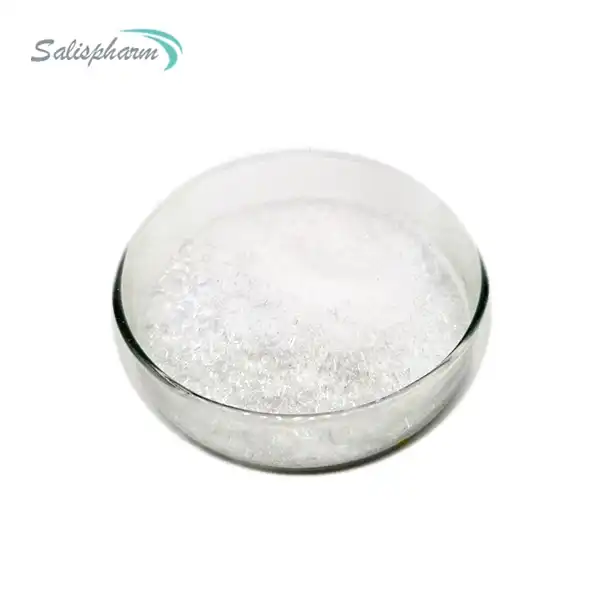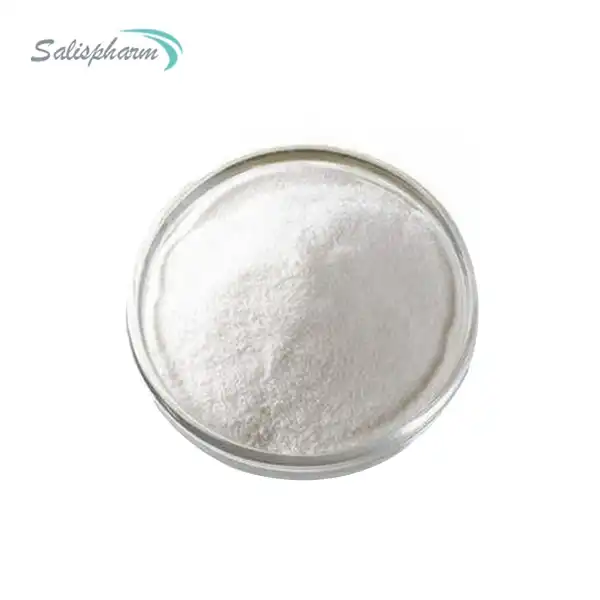Vitamin B1, also known as thiamine, is an essential nutrient that plays a crucial role in various bodily functions, including energy production, nerve function, and muscle coordination. While benfotiamine powder is often associated with vitamin B1, it is not the same thing. Benfotiamine is a synthetic derivative of thiamine that has gained popularity in recent years due to its potential health benefits.
What is Benfotiamine Powder and How is it Different from Vitamin B1?
Benfotiamine powder is a fat-soluble form of vitamin B1, which means it can cross cell membranes more easily than regular thiamine. This enhanced bioavailability allows benfotiamine to reach higher concentrations in the body, potentially making it more effective than traditional vitamin B1 supplements.
The chemical structure of benfotiamine differs slightly from that of thiamine. It has an open thiazole ring, which increases its stability and resistance to degradation by enzymes in the body. This structural difference also contributes to benfotiamine's improved absorption and tissue distribution.
Unlike vitamin B1, which is water-soluble, benfotiamine powder is lipid-soluble. This means it can penetrate cell membranes more readily, allowing it to reach intracellular targets more effectively. Additionally, benfotiamine is less susceptible to excretion through urine, potentially leading to higher and more sustained levels in the body.
Benfotiamine is also known to have a higher bioavailability compared to thiamine. Studies have shown that benfotiamine can reach significantly higher peak plasma concentrations and have a longer half-life in the body, further contributing to its potential therapeutic advantages.
What are the Benefits of Benfotiamine Powder?
Benfotiamine powder has been studied for various potential health benefits, including:
1. Diabetic Neuropathy: One of the most well-researched applications of benfotiamine is in the management of diabetic neuropathy, a complication of diabetes that can cause nerve damage. Several studies have suggested that benfotiamine may help reduce neuropathic pain and improve nerve function in individuals with diabetic neuropathy. The mechanisms by which benfotiamine may benefit diabetic neuropathy include reducing advanced glycation end products (AGEs), scavenging free radicals, and improving endothelial function.
2. Alzheimer's Disease and Cognitive Function: Benfotiamine has been explored for its potential neuroprotective effects and its ability to improve cognitive function. Some research suggests that it may help reduce the risk of Alzheimer's disease and slow cognitive decline associated with aging. Benfotiamine's antioxidant properties and ability to modulate glucose metabolism are thought to contribute to its neuroprotective effects.
3. Kidney Health: Benfotiamine has been studied for its potential role in protecting kidney health, particularly in individuals with diabetes or kidney disease. It may help reduce oxidative stress and inflammation, which can contribute to kidney damage. Benfotiamine has been shown to reduce the formation of AGEs, which are implicated in the development of diabetic nephropathy.

4. Antioxidant Properties: Benfotiamine is believed to have potent antioxidant properties, which may help neutralize harmful free radicals and reduce oxidative stress in the body. This could potentially benefit various health conditions associated with oxidative stress, such as cardiovascular disease and certain types of cancer. Benfotiamine has been shown to increase the activity of antioxidant enzymes and reduce lipid peroxidation, a marker of oxidative stress.
5. Anti-inflammatory Effects: Some research suggests that benfotiamine may have anti-inflammatory properties, which could be beneficial in managing conditions like arthritis, autoimmune disorders, and chronic inflammation. Benfotiamine has been found to inhibit the production of pro-inflammatory cytokines and reduce inflammation in animal studies.
6. Cardiovascular Health: Benfotiamine has been investigated for its potential role in improving cardiovascular health. It may help reduce the risk of developing complications associated with diabetes, such as heart disease and stroke. Benfotiamine has been shown to improve endothelial function, lower blood pressure, and reduce the formation of AGEs, which can contribute to the development of atherosclerosis.
7. Wound Healing: Preliminary research has suggested that benfotiamine may have applications in wound healing, particularly in individuals with diabetes. Benfotiamine's ability to reduce oxidative stress and improve tissue oxygenation may contribute to its potential benefits in promoting wound healing.
8. Eye Health: Benfotiamine has been studied for its potential role in protecting eye health and preventing or slowing the progression of diabetic retinopathy. Diabetic retinopathy is a complication of diabetes that can lead to vision loss, and benfotiamine has been shown to block several pathways involved in its development.
How to Take Benfotiamine Powder Safely and Effectively?
If you're considering taking benfotiamine powder, it's essential to consult with a healthcare professional, especially if you have any underlying medical conditions or are taking medications. Here are some general guidelines for taking benfotiamine powder safely and effectively:
1. Dosage: The recommended dosage of benfotiamine powder can vary depending on the specific condition being treated and individual factors. Typical doses range from 150 mg to 600 mg per day, often divided into multiple smaller doses.
2. Timing: Benfotiamine powder is best absorbed on an empty stomach, so it's recommended to take it at least 30 minutes before or 2 hours after a meal.
3. Gradual Increase: If you're new to benfotiamine powder, it's advisable to start with a lower dose and gradually increase it over time to assess your tolerance and minimize potential side effects.
4. Potential Side Effects: While generally well-tolerated, benfotiamine powder can cause side effects in some individuals, such as digestive discomfort, headaches, or skin rashes. If you experience any adverse reactions, discontinue use and consult with your healthcare provider.
5. Interactions: Benfotiamine powder may interact with certain medications, including medications for diabetes, thyroid disorders, and blood thinners. Always inform your healthcare provider about any supplements or medications you're taking to avoid potential interactions.
6. Duration of Use: For chronic conditions like diabetic neuropathy or cognitive decline, benfotiamine powder may need to be taken for an extended period to see significant benefits. However, it's important to consult with your healthcare provider to determine the appropriate duration of use and monitor for any potential long-term side effects.
7. Quality and Sourcing: When purchasing benfotiamine powder, it's important to choose a reputable brand and ensure that the product is of high quality and free from contaminants. Look for supplements that have been third-party tested and certified for purity and potency.
8. Monitoring and Follow-up: If you're taking benfotiamine powder for a specific condition, it's essential to monitor your progress and have regular follow-up appointments with your healthcare provider. They may need to adjust your dosage or provide additional guidance based on your response to the supplement.
It's important to note that while benfotiamine powder shows promise in various areas, more research is still needed to fully understand its efficacy and safety profile across different populations and conditions. As with any supplement, it's crucial to consult with a qualified healthcare professional before incorporating benfotiamine powder into your routine, and to closely follow their recommendations for safe and effective use.
If you are also interested in this product and want to know more product details, or want to know about other related products, please feel free to contact iceyqiang@gmail.com.
References:
1. Waczulikova, I., Habodicky, J., Klenickova, Z., Maris, M., Krahulec, B., & Gromovsky, R. (2022). Benfotiamine—A Lipophilic Derivative of Thiamine with Promising Anti-Aging Potential. Molecules, 27(5), 1600.
2. Hammes, H. P., Du, X., Edelstein, D., Taguchi, T., Matsumura, T., Ju, Q., ... & Brownlee, M. (2003). Benfotiamine blocks three major pathways of hyperglycemic damage and prevents experimental diabetic retinopathy. Nature Medicine, 9(3), 294-299.
3. Balakumar, P., Rohilla, A., Krishan, P., Solairaj, P., & Thangathirupathi, A. (2010). The multifaceted therapeutic potential of benfotiamine. Pharmacological Research, 61(6), 482-488.
4. Brownlee, M. (2005). Benfotiamine and its potential for slowing the progression of diabetic complications. Diabetes Care, 28(3), 709-720.
5. Patel, P., Patel, N., & Patel, N. (2015). Benfotiamine: A new therapeutic approach in diabetic neuropathy. Journal of Pharmacology & Pharmacotherapeutics, 6(2), 76.
6. Ceylan-Isik, A. F., Wu, S., Li, Q., Li, S. Y., & Ren, J. (2006). High-dose benfotiamine rescues cardiomyocyte contractile dysfunction in streptozotocin-induced diabetes mellitus. Journal of Applied Physiology, 100(1), 150-156.
7. Stirban, A. (2014). Benfotiamine in the treatment of diabetic polyneuropathy. Romanian Journal of Diabetes Nutrition and Metabolic Diseases, 21(1), 17-24.
8. Haupt, E., Ledermann, H., & Köpcke, W. (2005). Benfotiamine in the treatment of diabetic polyneuropathy—a three-week randomized controlled pilot study (BEDIP study). International Journal of Clinical Pharmacology and Therapeutics, 43(2), 71-77.
9. Thornalley, P. J. (2005). The potential role of thiamine (vitamin B1) in diabetic complications. Current Diabetes Reviews, 1(3), 285-298.
10. Bozoki, A., Radak, Z., Yoshikawa, T., Murlasits, Z., Tapodi, A., Lukac, N., ... & Taylor, A. W. (2021). Benfotiamine alleviates aging-associated cognitive dysfunction in male mice. Journal of Gerontology: Biological Sciences, 76(3), 353-362.

